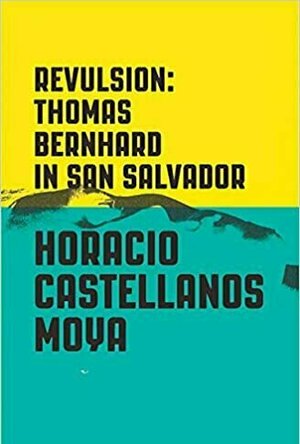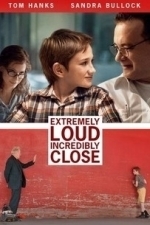Search
Search results
James Wood recommended Revulsion: Thomas Bernhard in San Salvador in Books (curated)
JT (287 KP) rated Extremely Loud & Incredibly Close (2012) in Movies
Mar 10, 2020
Oskar Schell (Horn) and his father Thomas (Hanks) share a special bond, the pair seem inseparable. They spend most nights together reading books and solving puzzles with Thomas regaling stories of a mysterious sixth borough once part of New York.
When the 9/11 attacks tear the city apart it also rips apart the the Schell family as they come to terms with the loss of Thomas. Sandra Bullock supports as a grieving wife and a mother that has seemingly lost all control over her son. Oskar is himself a unique individual blessed with high intelligence he struggles to fill the void left by his father, but when he gains the courage to venture into his parents bedroom and his father’s closet he finds a key which leads him on a journey of self discovery and ultimate closure.
I have a bit of a gripe when it comes to child actors, their talents are almost so good it is beyond their own age and their performances can be over elaborated. Horn delivers a performance with gusto and it’s a credit to him. If occasionally annoying at times. Oskar’s journey takes him all over New York city, through its boroughs and interacting with its inhabitants all of whom have been affected by the terrible tragedy in someway.
Oskar links the key to the name Black, believing this to be a person he creates himself a map and intricate catalogue of every individual in New York by this name.He sets himself the goal of speaking to every last person, no matter how long it is going to take and records everything in a journal with photographs to accompany his experiences with them. Bullock gives an assured performance as a grief stricken and desperate mother
Max von Sydow joins him on his quest as a mysterious old man who doesn’t speak and only communicates through a notepad and pen. He himself has his own set of personal problems and its obvious from the outset just who he is. Von Sydow gives a typically brilliant performance even without the use of dialogue. The film is drawn out, too long for its own good. We’re desperate to understand just where this key fits and when the pieces of the jigsaw are finally complete we feel about the same disappointment as Oskar does.
That’s not to say the film is without its merits, and director Stephen Daldry and writer Eric Roth deal with the implications of Oskar and his problems extremely well, using flashbacks you can really begin to unravel the complexities of the 11-year olds inner psyche. I enjoyed the film but wouldn’t say I was completely comfortable with it for some parts, the ending, while closing the narrative, left me feeling somewhat annoyed and that’s a feeling that sticks with me long after the credits go up.
When the 9/11 attacks tear the city apart it also rips apart the the Schell family as they come to terms with the loss of Thomas. Sandra Bullock supports as a grieving wife and a mother that has seemingly lost all control over her son. Oskar is himself a unique individual blessed with high intelligence he struggles to fill the void left by his father, but when he gains the courage to venture into his parents bedroom and his father’s closet he finds a key which leads him on a journey of self discovery and ultimate closure.
I have a bit of a gripe when it comes to child actors, their talents are almost so good it is beyond their own age and their performances can be over elaborated. Horn delivers a performance with gusto and it’s a credit to him. If occasionally annoying at times. Oskar’s journey takes him all over New York city, through its boroughs and interacting with its inhabitants all of whom have been affected by the terrible tragedy in someway.
Oskar links the key to the name Black, believing this to be a person he creates himself a map and intricate catalogue of every individual in New York by this name.He sets himself the goal of speaking to every last person, no matter how long it is going to take and records everything in a journal with photographs to accompany his experiences with them. Bullock gives an assured performance as a grief stricken and desperate mother
Max von Sydow joins him on his quest as a mysterious old man who doesn’t speak and only communicates through a notepad and pen. He himself has his own set of personal problems and its obvious from the outset just who he is. Von Sydow gives a typically brilliant performance even without the use of dialogue. The film is drawn out, too long for its own good. We’re desperate to understand just where this key fits and when the pieces of the jigsaw are finally complete we feel about the same disappointment as Oskar does.
That’s not to say the film is without its merits, and director Stephen Daldry and writer Eric Roth deal with the implications of Oskar and his problems extremely well, using flashbacks you can really begin to unravel the complexities of the 11-year olds inner psyche. I enjoyed the film but wouldn’t say I was completely comfortable with it for some parts, the ending, while closing the narrative, left me feeling somewhat annoyed and that’s a feeling that sticks with me long after the credits go up.
Sophia (Bookwyrming Thoughts) (530 KP) rated Tabula Rasa (Tabula Rasa, #1) in Books
Jan 23, 2020
I was extremely curious about Tabula Rasa when I found out what it meant (Latin: Scraped Tablet. AKA, a newborn basically.) I also thought it would be a really interesting read I mean, girl has a tragic past, and is basically a lab rat in a procedure to erase those memories. Oh, and what's even more intriguing? Most of the "rats" are delinquents. I suppose from a delinquent's view, one would want to erase memories. Better than sitting in juvie, right? :p
It's certainly a cause for curiosity. I mean, we're reading the story from a possible criminal! I know I shouldn't be excited, but can you blame me? I've never actually read a story from a delinquent! ^o^
Not to burst any exciting bubbles bubbling up, but truth is, Sarah, our main character, isn't. That was highly disappointing when I found out. Instead, I found out she was some idol of sorts in New York, famous for uncovering a scam. Um... not too exciting. Plus, she seems much too fearless. I could have sworn she wasn't afraid of death even throughout the entire book. If there's one question I want to ask Sarah, it's "Are you even afraid of anything?"
<img src="http://2.bp.blogspot.com/-uGUfnIbJtyY/U5yh6n3z6iI/AAAAAAAADe4/BU4P9O2rlTg/s1600/giphy+(12).gif"; border="0">
During the earlier parts of the book though, I sort of wanted to just toss Tabula Rasa aside and mark it as DNF. It felt a little too creepy, and confusing. The creepy part probably worked to an advantage, seeing how the surgery was quite detailed. *shudders*
<blockquote>Improvising seems familiar. Like it's my style.</blockquote>
Now the confusing part, that was just randomly thrown in. And I mean the quote. Not me randomly throwing the word confusing around and about. Sarah's going to a tool closet and putting things in her pocket. I'm not sure that's improvising. She's not making anything from what I read, aside from noticing a door. Does noticing a door count as improvising?
The romance between Thomas and Sarah. Really odd. Just... really odd. I felt like Thomas was trying a bit too hard on being funny at the beginning. Later he tends to be more "relaxed" and the humor felt more natural. But for a hacker with a father formerly in the Russian Intelligence Agency do they call it RIA? Thomas just seems too carefree. It was as though hacking just isn't... him. I suppose a new career is on the horizons for said character.
I did learn some new things though. I'm done with truth serums. What's with authors after Veronica Roth throwing serums around? They're popping up in so many places. O_o Oh, and apparently it actually snows in Hawaii. In the mountains. Wait, there are mountains in Hawaii? MIND = BLOWN.
<img src="http://4.bp.blogspot.com/-_L4F_cUFsRc/U5yiXj5ftDI/AAAAAAAADfA/n9f9CgNd_H4/s1600/giphy+(13).gif"; border="0" height="179" width="320">
The Bourne Identity? I haven't read it myself, even though that sounds really familiar. Divergent? I'm not too sure. Even the folks of Dauntless are afraid of something. I guess the former's more of a bull's eye with Tabula Rasa than the latter. Tabula Rasa reminded me more of Nikita, Au Revoir Crazy European Chick, and apparently something else I can't remember with all the action and secret plots/schemes (it has something to do with operations).
------------------------
Advanced review copy provided by EgmontUSA for review
Original Review posted at <a href="http://bookwyrming-thoughts.blogspot.com/2014/09/arc-review-tabula-rasa-by-kristen-lippert-martin.html">Bookwyrming Thoughts</a>
<a href="http://bookwyrming-thoughts.blogspot.com/"><img src="http://3.bp.blogspot.com/-cG5gfBqJVzk/VA5BIojjZ9I/AAAAAAAAD1g/7srLUfpAGEU/s1600/banner.png"; /></a>
It's certainly a cause for curiosity. I mean, we're reading the story from a possible criminal! I know I shouldn't be excited, but can you blame me? I've never actually read a story from a delinquent! ^o^
Not to burst any exciting bubbles bubbling up, but truth is, Sarah, our main character, isn't. That was highly disappointing when I found out. Instead, I found out she was some idol of sorts in New York, famous for uncovering a scam. Um... not too exciting. Plus, she seems much too fearless. I could have sworn she wasn't afraid of death even throughout the entire book. If there's one question I want to ask Sarah, it's "Are you even afraid of anything?"
<img src="http://2.bp.blogspot.com/-uGUfnIbJtyY/U5yh6n3z6iI/AAAAAAAADe4/BU4P9O2rlTg/s1600/giphy+(12).gif"; border="0">
During the earlier parts of the book though, I sort of wanted to just toss Tabula Rasa aside and mark it as DNF. It felt a little too creepy, and confusing. The creepy part probably worked to an advantage, seeing how the surgery was quite detailed. *shudders*
<blockquote>Improvising seems familiar. Like it's my style.</blockquote>
Now the confusing part, that was just randomly thrown in. And I mean the quote. Not me randomly throwing the word confusing around and about. Sarah's going to a tool closet and putting things in her pocket. I'm not sure that's improvising. She's not making anything from what I read, aside from noticing a door. Does noticing a door count as improvising?
The romance between Thomas and Sarah. Really odd. Just... really odd. I felt like Thomas was trying a bit too hard on being funny at the beginning. Later he tends to be more "relaxed" and the humor felt more natural. But for a hacker with a father formerly in the Russian Intelligence Agency do they call it RIA? Thomas just seems too carefree. It was as though hacking just isn't... him. I suppose a new career is on the horizons for said character.
I did learn some new things though. I'm done with truth serums. What's with authors after Veronica Roth throwing serums around? They're popping up in so many places. O_o Oh, and apparently it actually snows in Hawaii. In the mountains. Wait, there are mountains in Hawaii? MIND = BLOWN.
<img src="http://4.bp.blogspot.com/-_L4F_cUFsRc/U5yiXj5ftDI/AAAAAAAADfA/n9f9CgNd_H4/s1600/giphy+(13).gif"; border="0" height="179" width="320">
The Bourne Identity? I haven't read it myself, even though that sounds really familiar. Divergent? I'm not too sure. Even the folks of Dauntless are afraid of something. I guess the former's more of a bull's eye with Tabula Rasa than the latter. Tabula Rasa reminded me more of Nikita, Au Revoir Crazy European Chick, and apparently something else I can't remember with all the action and secret plots/schemes (it has something to do with operations).
------------------------
Advanced review copy provided by EgmontUSA for review
Original Review posted at <a href="http://bookwyrming-thoughts.blogspot.com/2014/09/arc-review-tabula-rasa-by-kristen-lippert-martin.html">Bookwyrming Thoughts</a>
<a href="http://bookwyrming-thoughts.blogspot.com/"><img src="http://3.bp.blogspot.com/-cG5gfBqJVzk/VA5BIojjZ9I/AAAAAAAAD1g/7srLUfpAGEU/s1600/banner.png"; /></a>


